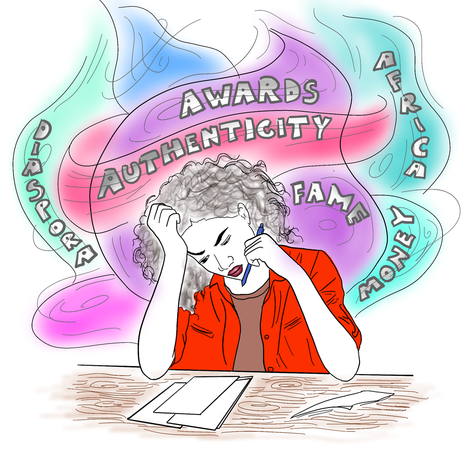Your podcast discovery platform
Curious minds select the most fascinating podcasts from around the world. Discover hand-piqd audio recommendations on your favorite topics.

piqer for: Global finds
Ciku Kimeria is a Kenyan author "Of goats and poisoned oranges" - (https://www.amazon.com/goats-poisoned-oranges-Ciku-Kimeria-ebook/dp/B00HBBWPI6), development consultant, adventurer and travel blogger (www.thekenyanexplorer.com). She writes both fiction and non-fiction focusing on African stories that need telling. She has worked on diverse pieces for various international and local publications including Quartz, Ozy, The East African etc. She has travelled to 45 countries – 16 of them in Africa. 153 countries to go and 63 territories!
"Of goats and poisoned oranges" has been extremely well received in Kenya and beyond. It tells the story of a Kenyan middle aged power couple and their complicated marriage. The novel explores issues of greed, revenge, betrayal and murder. It runs from the 1960s to 2013. It has been described as “Wicked, funny, poignant, wacky, human, a big ball of fun and danger”, “A unique and captivating book”, “Fun and intriguing”, “Impossible to put down once you start reading.”
She recently moved to Dakar, Senegal from Kenya to work on her second novel. She also works at as the Africa Communication Manager at a leading global strategy consulting firm.
She holds a B.S. in Management Science from MIT with minors in Urban Planning and International development studies.
Podcast: Stories From The Black Diaspora—The African Writer's Dilemma
I'm over it: Immigrant Literature. I don’t know when it happened. It might have been somewhere in the middle of Teju Cole’s Open City, as I followed his protagonist around the streets of New York. Or maybe it was at the end of NoViolet Bulawayo’s We Need New Names, when I boarded the flight to America with its precocious star. Or perhaps it was a few weeks after finishing Chimamanda Ngozi Adichie’s Americanah, and I had finally begun to forget the stress carried by illegal African immigrants in Europe.
Thus begins Siyanda Mohutsiwa's part of this podcast where she laments the plight of African literature. Her words resonate deeply with me as an African writer—when did the African immigrant story become the main defining story of the African experience? I decided that I could be a writer when I first listened to Chimamanda Ngozi Adichie's amazing TED Talk,The danger of a single story. Through her words I realized that Africa needed more stories than those that prevailed at the time—stories of HIV/AIDS, civil war, poverty etc. I had always wondered what right I had to consider myself a writer when my life experiences are those of a middle class Kenyan. The talk made me realize that we need diverse stories. Sometime between then and now, a new type of genre began to represent African literature: that of the African immigrant. While these are important stories, I seek to read more stories about Africans in Africa. I refuse to believe that the only way people can relate to our stories is when they are juxtaposed against the West. With that, I choose to roam the streets of Kinshasa in Alain Mabanckou's words, hop over to Johannesburg for happy hour in the words of Zukiswa Wanner's books, lose myself in Accra in Ayesha Harruna Attah's tales and find myself back home in my own stories based in Kenya.
This podcast captures well a debate the world might not be aware we are having as African writers: why are we only celebrating books set in the West?
